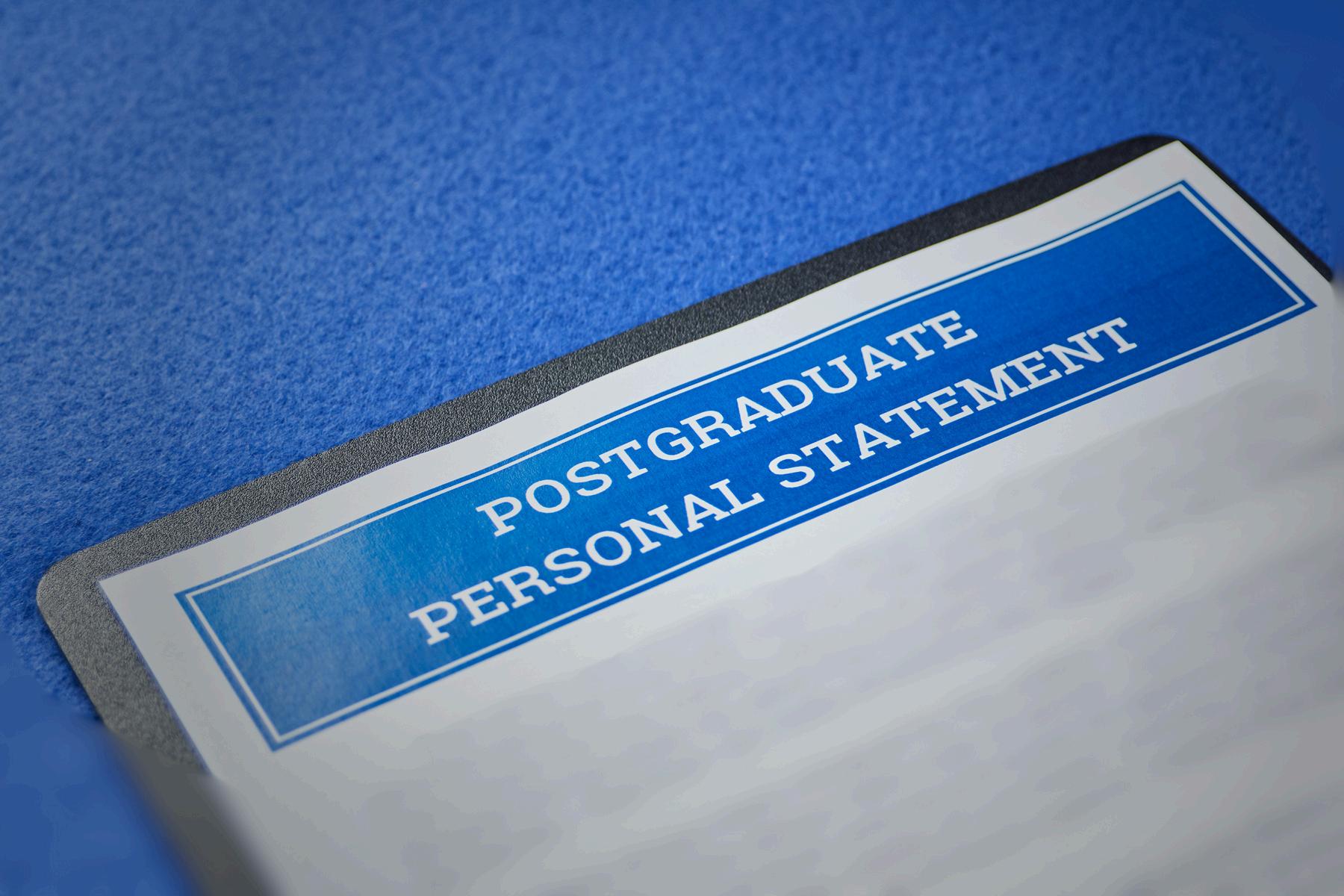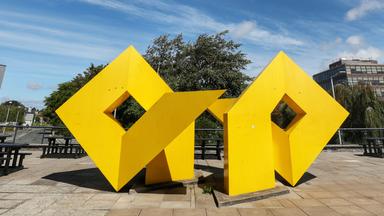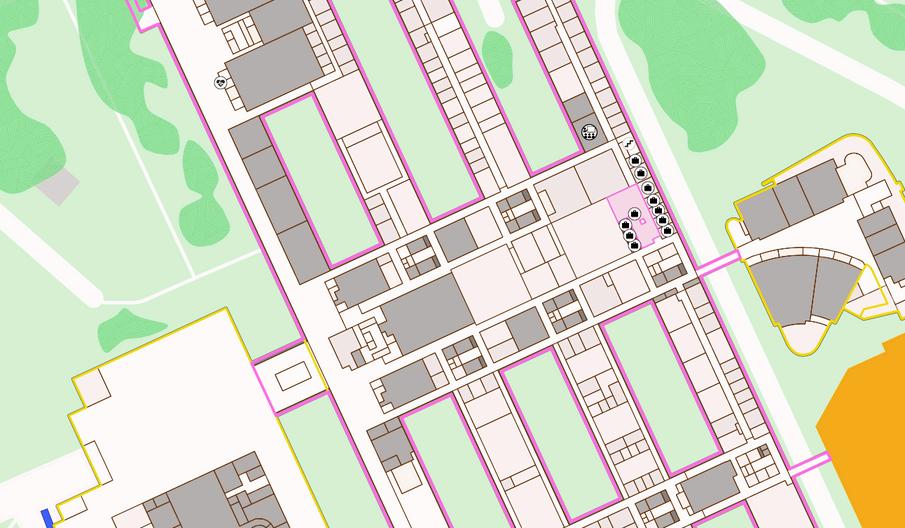




Clickoneachheadertogotothatpage
Pg 1
Pg 2
Pg 3
Pg 5
Pg 6
Pg 8
Pg 10
Pg 11
Introduction
Preparation
WhattoInclude
HowtoWriteaPersonalStatement-GeneralAdvice
MyPersonalStatementTimeline
HowtoWriteaPersonalStatement-SpecificDisciplines Summary
PersonalStatementWorksheet

Many postgraduate courses require a personal statement as part of the application. It is a very important part of the application process.
Bear in mind that many postgraduate courses are very competitive and available places are limited. The personal statement allows the programme director to compare applicants and as such, your personal statement could be the deciding factor in receiving an offer for your programme.
The key word here is ‘personal’, your goal in writing your personal statement is to describe YOUR passion for the subject area and YOUR motivation or reason(s) why you are applying. Show that you are committed to completing the course and explain how studying your chosen course fits in with YOUR long-term career goals.
With the availability of AI tools, it may be tempting to use these when prepping your personal statement. Please bear in mind that many university systems use software to screen for plagiarism which can pick up AI-sourced material (as it will be available in their data banks).

Before you start writing your personal statement, it is important to do some research including:
Deadlines will vary across universities and courses, check the course website.
At University of Galway, most programmes do not set specific closing dates for receipt of applications, (with some exceptions such as the MA in Social Work and Professional Masters of Education PME, etc.). Applications will be accepted on a rolling basis and course quotas will be reviewed continuously throughout the application cycle. Programmes which reach their quota will close to applications. As many courses fill up quickly, you are advised to apply as early as possible.
Candidates who do not have their final degree marks available may be made a conditional (provisional) offer.
If you miss the application deadline, it is always worth contacting the programme director or course coordinator to enquire.
An honours undergraduate degree is the typical academic requirement for entry into most taught postgraduate programmes. Some courses require a 2.1, check the course website for details.
Make sure you are aware of any word count limits as institutions and application processes have different instructions, for example, most University of Galway postgraduate programmes require a personal statement of approximately 500 words which is the equivalent of one typed page. Follow the specific guidelines and instructions for each application process.
Fully review the course outline and modules you will study in the course and any additional aspects of the course such as work placement or a thesis. Other important information is the career paths that are available after the course, and any further special features. This information is needed to help you write a tailored personal statement.
It is important to attend an open day and talk to the programme director, who will answer queries in relation to the course and application process.
Ensure you give yourself plenty of time to write your personal statement. Draft and redraft your statement until you are happy and allow time to get some feedback from friends, a family member, academic, or a careers adviser* (see timeline on pages 6-7).
The course director, reviewing your personal statement for further study, will want to know why you are applying for this course, your academic ability to succeed in the course, your relevant skills and interest in the area of study, and your future ambitions or professional goals. It is therefore important to include the following in your statement:
Your motivation and passion for taking the course. What interests you about the course and the subject?
Any specific areas of the course that you are particularly interested in and how you developed this interest?
Your clear understanding of the course and what motivates you to complete it.
Your background knowledge of the subject and how your previous study is related to the course being applied for.
What skills have you developed that you can transfer to this new area of study? This is particularly important if your current or previous study is not related to the course being applied for.
*AppointmentsareonlyavailabletoregisteredstudentsattendingUniversityofGalwayor ourveryrecentgraduates.RegisterwithCareersConnectfordetails.
The relevance of any previous work experience (voluntary or paid) to the course being applied for.
Your skills, interests and abilities and how these make you a suitable candidate.
The impact the course learnings will have on your future career/profession.
What you intend to do upon successful completion of the course.
Write the personal statement in essay format and group it into sections that ensure a coherent flow with no repetition. Make sure your personal statement has an introduction, detailed middle sections with a number of paragraphs, and a strong conclusion. The information below outlines a sample outline that could be followed when writing your statement.
Section1 – Introduction – an impactful beginning. Why you have chosen this course/profession/university.
Section2 – Your academic qualifications, relevant subjects/modules/projects studied.
Section3 – Personal qualities and achievements that make you suitable (including evidence of how you have developed them).
Section4 – Any work experience you have completed, outlining what you learnt from the experience and the relevance to the course.
Section5 – Conclusion. Sum up your overall suitability for the course and show clearly that you know what you want to get out of the course and where you hope the qualification will lead you. Connect back to your motivation from Section 1.
Beware of using clichéd opening lines such as ’it has always been my dream to be a…….’ or “my name is……” instead be creative with your opening lines to make yourself stand out from other candidates.
Use clear language and short sentences of no more than 25-30 words.
Use the section guides on the previous page as your paragraph structure outline.
You will not be able to include everything you have ever done so you will need to be selective in choosing what is relevant to your application.
If you do have some personal issue that you feel is necessary to disclose in your statement, you can discuss this with a career adviser* to ensure that you are presenting the information in the most appropriate way.
Be prepared to write a few drafts before you are happy with the finished product. Avoid repetition of points in the statement.
Spell check and grammar check. Many applications are completed online, and the system may not have a spell-check facility.
Always read over your statement after editing to ensure you’re happy with the context.
*AppointmentsareonlyavailabletoregisteredstudentsattendingUniversityofGalwayor ourveryrecentgraduates.RegisterwithCareersConnectfordetails.
Step1
6+MonthsBefore
Research the course entry requirements
Know the application deadline date
Attend Postgraduate Study
Open Day events


1
2




Step2
Make a List of what course directors are looking for in a personal statement
Complete the Worksheet on pages 11-13
3 Step3 2MonthsBefore ApplicationDeadline
Proofread your statement: check for grammar & spelling mistakes
Get it checked e.g. friend or careers adviser*
3MonthsBeforeApplicationDeadline
4
Step5
Don'tforgettorereadit before you go for an interview, you will be asked questions about it
Step4
1MonthBefore theApplication Deadline
Check it again! - spelling, grammar & word count
Make any further changes
Tailor to the course
Submit before deadline date
Attend a Personal Statement Workshop from your Career Development Centre
Write an early draft
*AppointmentsareonlyavailabletoregisteredstudentsattendingUniversityofGalwayorveryrecentgraduates.RegisterwithCareersConnectfordetails.
5
While the above pointers apply to all personal statements there are some personal statements that have specific requirements, the examples below cover some popular disciplines.
Outline why you think you are suited to a career in teaching and what has motivated you (such as your experience of an inspiring teacher, or aspiring to be a role model for students with a similar story to yours).
Provide evidence that you have the necessary skills and attributes to become a successful teacher, examples include organisation skills, communication skills, empathy, creativity, passion for your subject(s) areas, energy and motivation.
Show how your degree relates to the primary or secondary curriculum that you are interested in teaching.
If you have any experience in teaching or shadowing work in a classroom environment, do not just state it, outline what you have learnt and observed and connect yourself in with these points.
If you take part in any extra-curricular activities that are relevant or appropriate to teaching be sure to include details of this. Examples include art, drama, dance, sport and music.
Explain why you have decided to change your direction of study. Show how changing your direction of study will help you with your future career.
If appropriate, show that your undergraduate degree will bring a different perspective to the course.
Use prior experience to strengthen your application by demonstrating the value of your experience and how it adds to the course.
Outline why you think you are suited to a career in medicine or an allied health profession.
Demonstrate an understanding of the profession, if you would like to be a doctor, an occupational therapist or a speech and language therapist the course director will need to see that you have a clear understanding of the area and the role.
Highlight the subjects that you have studied as part of your degree that are relevant to the course you are applying for. You will need to demonstrate that you have the personality for working in healthcare. Evidence of attributes such as empathy, resilience, agility and interpersonal skills will be particularly important.
Applications may require some work experience in the area to show your motivation and confirm your understanding of a career in healthcare. Ensure to outline what you learned rather than simply listing what you observed.
Many research courses ask for a personal statement as part of the application process and some courses also ask for a research proposal, be careful not to confuse these two documents.
The personal statement will require information on why you are interested in researching the area and what skills and attributes you possess that make you suitable for researching in the particular area while a research proposal will look for all the technical subject-specific details that you will cover as part of your thesis.
It is recommended that you get your research proposal reviewed by an academic expert in the chosen field of research.
Remember, the key word is ‘personal’. It is often what separates successful from unsuccessful candidates, so it is worth giving it time and consideration before submitting your application.
To have your statement reviewed before you submit your postgraduate study application contact the Career Development Centre for an appointment* well in advance of college deadline dates.
Some postgraduate applications also look for a CV or may call you for interview, so please check out our CV and Interview Skills booklets at the link below:
CV&InterviewSkillsBooklets
Gotonuigalwayie.sharepoint.com/sites/Careers/ SitePages/CV-samples.aspx orscantheQRCode
*AppointmentsareonlyavailabletoregisteredstudentsattendingUniversityofGalwayor ourveryrecentgraduates.RegisterwithCareersConnectfordetails.

You can use this worksheet to brainstorm what you need to include in your personal statement.
Whydoyouwanttoapplytothiscourse?
Howhaveyoudevelopedaninterestinthecourseyouareapplyingfor? (Canincluderelevantareasormodulesfromyourdegreeprogramme,if applicable)
Whathaveyoustudiedforyourundergraduatedegree?Whataspectsof thisdidyouenjoy?Isthereanythingdistinctiveaboutyouracademic resultsoranyawardsorscholarshipsthatyouachievedthatshouldbe highlighted?
Whatskills,interestsandaptitudesdoyouhavethatmakeyouasuitable candidateforthecourseorrelatedprofession?(Backtheseupwith evidenceofwhereyouhavedevelopedthem).
Haveyoucompletedanyworkexperienceorplacement(paidor voluntary)thatisrelevanttothecourseyouareapplyingfor?Outlinewhat youhavelearnedandhowthishasstrengthenedyourknowledgeofthe area,facilitatedthedevelopmentofrelevantskillsandconfirmedyour interestinpursuingthiscourseofstudy.
Haveyoutakenpartinanyotheractivitiesthatdemonstrateyourinterest inthearea(e.g.,homeworkclubwhenapplyingforteachingcoursesor LawSocietyifyouareinterestedinanLLM)?
Listanypositionsofresponsibilityoryourinvolvementinextracurricular activitiesorsocieties;isthereanythingabouttheworkyouweredoing thatisrelevanttothecourseyouareapplyingfor?(E.g.ifyouwereonthe committeeforasociety,youmayhavedevelopedsomerelevantskills throughtheworkthatwasinvolved).
Whatareyourfuturecareerplansaftercompletingthecourse?Outline whattheseareandhowthecourseyouareapplyingforwillenableyouto achievethem.
CareerDevelopmentCentre
Arts/Science Building
University of Galway
Ireland



OpeningHours:
Term:
M-Th Fri 9am-5pm 11am-4pm
ContactUs:
Tel: 091493589
Other: M-Th Fri 10am-4pm 11am-4pm
Email: careers@universityofgalway.ie
Web:universityofgalway.ie/careers